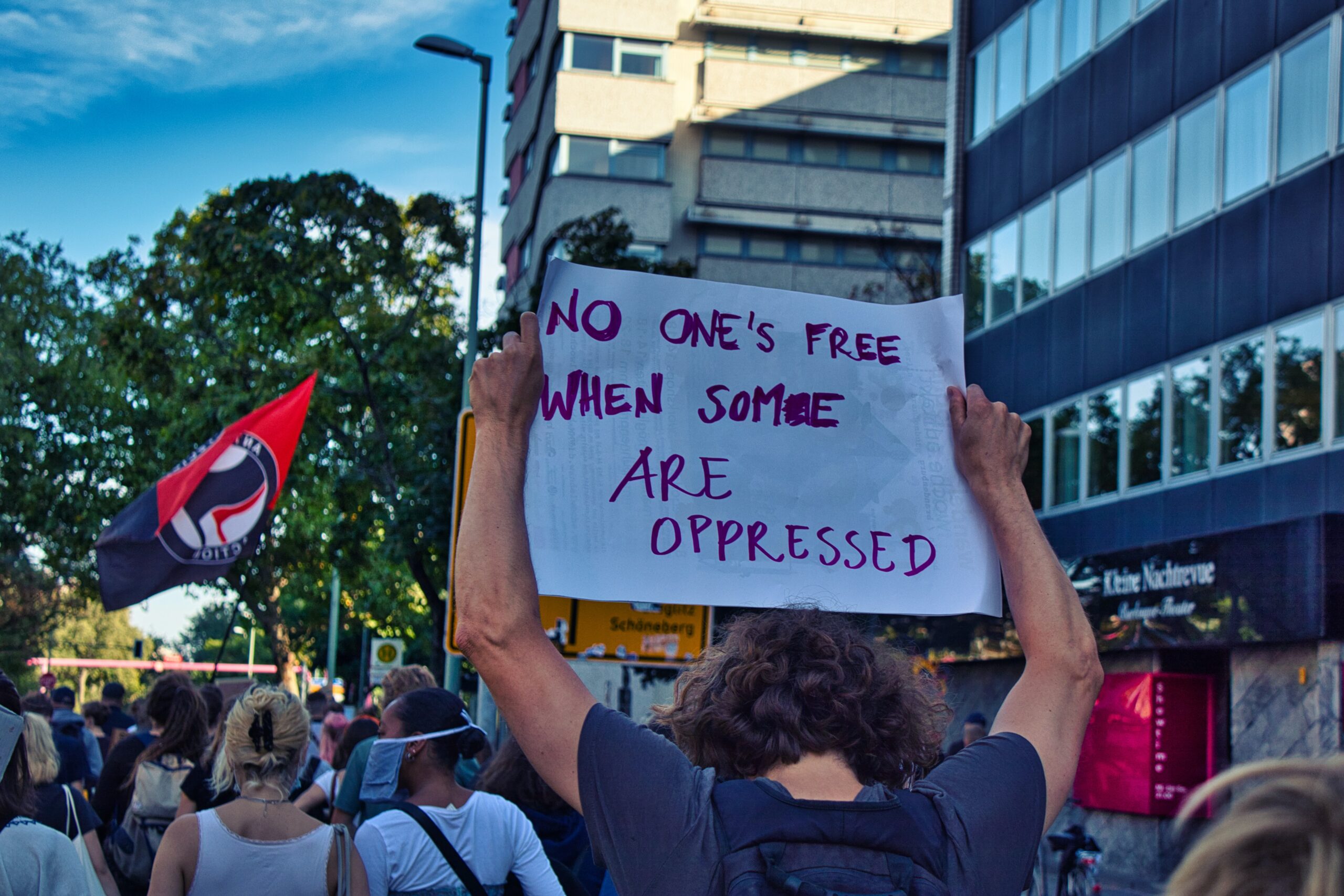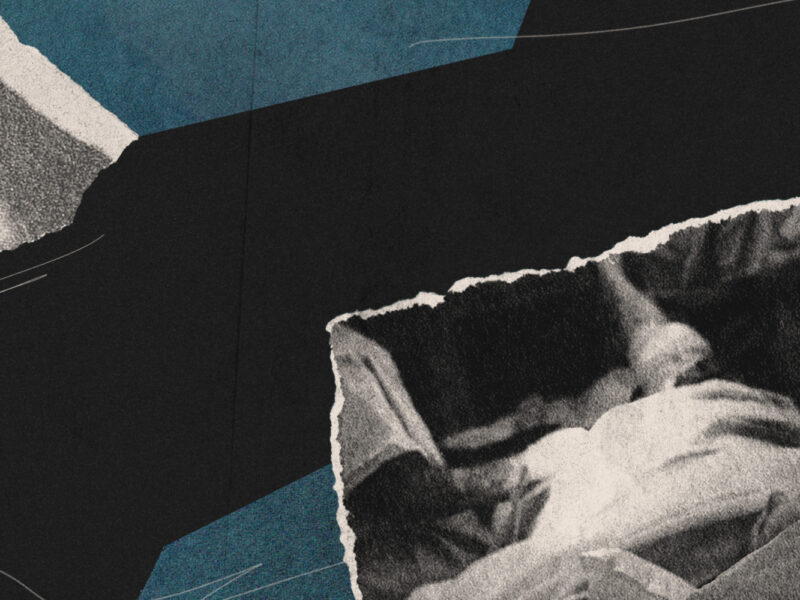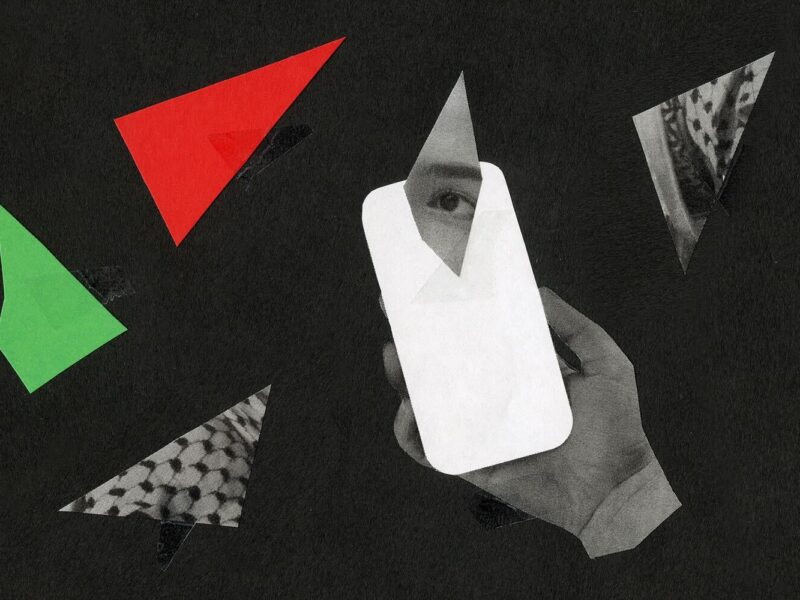Thousands of U.S. residents who were undocumented or on non-permanent visas fled to Canada during the Trump years.
Rodney* (not his real name) works as a machine operator at Canada Bread’s assembly line. To get to work each day he travels an hour by public transportation from his home in Montreal’s Côte-des-Neiges neighborhood to a production plant on the other side of town. He alternates day and night shifts, bagging bread products for the city’s major supermarkets; barring a three-week mandatory furlough, he’s worked through the pandemic without a break. Rodney is both an essential frontline worker and an asylum seeker.
The 36-year-old former police officer left his hometown of Kingston, Jamaica in February of 2015 when he learned that someone had put out a hit on him and his family due to his work in a special anti-corruption unit. Someone shot his younger sister, who lives with their elderly parents.
She survived, but Rodney knew he had to leave the country in order to protect his family. He fled to Florida, and then moved to New York City, where an aunt lived. But refugee claimants faced an uncertain future in the United States; he wanted something better and more permanent. So, in March of 2018, he crossed the border to Canada.
“My aunt lives in Queens, so I took a Greyhound bus to upstate New York and then a taxi to Roxham Road,” he told me.
Roxham Road: the trickle that became a tsunami
Before 2017, Roxham Road was just a quiet street in the small town of Plattsburgh, N.Y., which is right on the Canadian border. In February of that year the Trump administration began implementing its cruel immigration policies and people who had been in the U.S. for years, either as undocumented immigrants or on non-permanent visas, began to flee—many of them to Canada. It was then that the Roxham Road border crossing gained international attention.
This is the spot where many asylum seekers have crossed from the U.S. to Canada on foot, because a loophole in the Safe Third Country Agreement, signed by both countries, exempts asylum claimants who cross at unofficial entry points from being turned back. People who enter Canada from the U.S. at an official port of entry are ineligible to make a refugee claim and will be returned to the U.S.; the bilateral agreement presupposes the U.S. is a safe country for asylum seekers. In 2017, the Canadian Council for Refugees joined in a legal challenge against the Canadian government, asserting that the U.S. was no longer a safe haven for asylum seekers. Canada’s Federal Court agreed, ruling that the agreement breaches constitutional guarantees of life, liberty and security.
Prior to February 2017, says the Refugee Board of Canada, the number of asylum seekers coming from the States was in the hundreds. By September 2020, it skyrocketed to 58,625. As of this writing, roughly 16,000 claims have been accepted, 13,000 rejected, and slightly more than 27,000 cases are still pending. Research conducted by the Migration Policy Institute suggests around 40 percent of people who crossed that border left the U.S. “for reasons directly tied to U.S. immigration policies.”
The Trump administration implemented policies that made thousands of desperate people feel they faced the kind of harm Amnesty International qualified as “catastrophic.” Illegal family separations; massive pushbacks of asylum seekers at the U.S.-Mexico border; cruel, inhumane, and degrading treatment of detainees; and indefinite detention in deliberately cruel conditions, often bordering on torture, of people who were treated like criminals only because they sought a better life.
But while Canada’s immigration system looks better than its southern neighbor’s, it is still deeply flawed. For asylum seekers, the policies can seem capricious and even cruel. Rodney feels that the treatment he received at the hands of Canadian officials has been unjust.
“When I crossed, they arrested me, searched me, looked at my documentation, and put me in a room where I waited,” he said. Hours passed until a bus transported him to a holding area, where he waited until 1 a.m. to be interviewed.
The Canadian Border Services agent who interviewed him, he said, adopted a confrontational tone and made him feel that she was not assessing his request fairly.
Rodney told the agent about documentation that included sworn affidavits from his family and newspaper articles about his undercover work with the police, but the agent didn’t seem to believe him. “She kept inferring that my sister being shot was an accident and not a deliberate attempt on her life,” he said.
Non-recorded interviews pose a problem
That interview is now being used to undermine Rodney’s claim for asylum.
In the crucial Basis of Claim (BOC) document, upon which the Refugee Board decides whether or not to grant the applicant asylum, the agent wrote that Rodney had been instructed to destroy evidence during the course of his work as a police officer. Rodney denies having told the agent anything of the kind. But because the interview was not recorded, he is locked in a “he said/she said” situation.
He did not even learn what the agent had written on the form until his hearing in September of 2020. “When the judge started asking me why I hadn’t disclosed this so-called information, I explained that I couldn’t omit something that I had never said.” He added that the judge also asked why the newspaper articles didn’t report his name, “when it should have been obvious that it had been omitted to protect me and my family.”
Rodney does not understand why he was not allowed to see the original document at the time the agent took his statement. “It’s a statement that is essentially attributed to me, so why didn’t I get the opportunity to see what’s disclosed? I never saw it, I never signed it, and yet the contradiction between the Canada Border Services agent’s statement and my testimonial at the hearing is why my asylum request was basically denied, according to the judge.”
Jacqueline Callin, a spokesperson for the Canadian Border Services Agency (CBSA), confirmed that it was not the agency’s practice to record refugee claimants’ statements at ports of entry. But she did maintain that, while she could not comment on Rodney’s case specifically, CBSA rules stipulated that refugee claimants and their representatives should, in general, receive copies of the statement in advance of the hearing.
But Rodney insists the CBSA never gave him a copy of his file. “I was only given certified copies of my birth certificate and my passport from the same CBSA officer who interviewed me at the port of entry,” he said. His original birth certificate and passport are still with the border agency.
Long-standing issues persist
Rodney’s lawyer, Perla Abou-Jaoude, said that the CBSA often ignores routine requests for access to applicants’ files. This “puts the applicant at a disadvantage,” she said “and could be rectified so easily”— if the government agency would simply make a routine practice of providing a copy of the applicant’s file simultaneously to their lawyer and the Immigration and Refugee Board (IRB). Recording the interviews, she said, would also be an effective way of ensuring transparency and accountability.
Janet Dench, the executive director of the Canadian Council for Refugees (CCR), a national non-profit umbrella organization, said that the absence of recorded interviews was a “long-standing issue” and one that the council has been trying to rectify for a long time.
“You call a simple help line these days and you’re immediately informed that you’re being recorded,” she said. “Yet we’re not recording these important interviews when people’s lives are on the line, when [doing so] would allow the government to monitor the conduct of their agents? I don’t understand why they’re so resistant to it.”
Responding to complex questions under duress
Dench said the CCR’s position is that the task of asking these important questions and filling out the BOC should not be carried out by CBSA agents. “Asking such complex questions when people are tired, confused, and scared is questionable. We have repeatedly asked the IRB not to put too much weight on these initial testimonials, and for the most part, they don’t, but every case is different. Bottom line, the CBSA should not be conducting these assessments, and if they are, they should be recorded.”
Abou-Jaoude also questioned a practice that has refugee claimants filling out complicated forms when they’re exhausted, frightened, confused, and sometimes unaware of what they’re signing because of language barriers. Mistakes during the initial declaration can potentially affect their credibility and chances. Rodney and his lawyer have filed an appeal and he’s now waiting to hear back. The process could take up to a year.
Working as a frontline worker in a foreign country
In the meantime, Rodney works. He has no family in Canada, and he tells me that he leads a rather solitary life. When I tell him that it sounds lonely, there’s a long pause on the other end of the line. His older sister, who was severely handicapped, passed away this past October. Rodney was not able to attend her funeral or be with his family in mourning. He worries about his parents who have health problems, and he sends what money he can afford back home. “I don’t make much, but I make sacrifices so I can help them.”
When I ask him if he likes what he does, I can “hear” the shrug through the telephone. “I’m indifferent,” he said. “I work hard, and I always try to be professional. But I’m working to survive, so I can help my family.”
When the pandemic hit Rodney was working the night shift at Canada Bread. Workers have been equipped with surgical masks and face shields, so he feels safe at the plant. And his company has provided him with a letter explaining his presence outside during Quebec’s 8 p.m. to 5 a.m. curfew.
“The very first night the curfew was implemented I was stopped,” he said. “I was waiting for the bus early in the morning and a police car going in the opposite direction immediately made a U-turn and came straight at me. I showed them the letter.”
I ask him what his first impression of Montreal was. “It’s a lot more French than I expected before coming here,” he said, laughing. “I’m slowly learning the language and I wish I could take classes and improve it, but work exhausts me. I often finish my shift at 1 a.m. and at that hour the bus doesn’t pass by too often, so I routinely wait an additional 45 minutes just to board it. Then, another hour to get home,” he trails off.
With the hearing coming up, Rodney wants to share what happened to him. He wants people to understand that the system needs improving.
Canadian border agents under investigation
He’s not the only one who thinks so. In 2019, the National Security and Intelligence Committee of Parliamentarians launched a review into the actions of the CBSA, following multiple reports of flaws within the agency, as well as multiple harassment allegations. CBC News reported that the agency had investigated 1,200 allegations against its own staff over a two-and-a-half-year period.
“CBSA agents have a lot of discretionary power, but there’s no outside oversight of staff conduct, which can occasionally be problematic,” said Abou-Jaoude. Dench confirmed that the CCR was very aware of the lack of accountability and transparency.
Considering the power and scope border policing agents have, combined with allegations of serious misconduct that include unnecessary force, conflict of interest, and sexual harassment, one would think the government would welcome recorded interview sessions, since they would protect both the applicants and the agency’s reputation.
“So much is at stake here— for me and my family,” Rodney says. “I have no recourse now. There’s a contradiction between [the CBSA agent’s] statement and my story and naturally the judge will take her word as being neutral and accurate. But what she wrote was inaccurate and there’s no way for me to prove it.”



